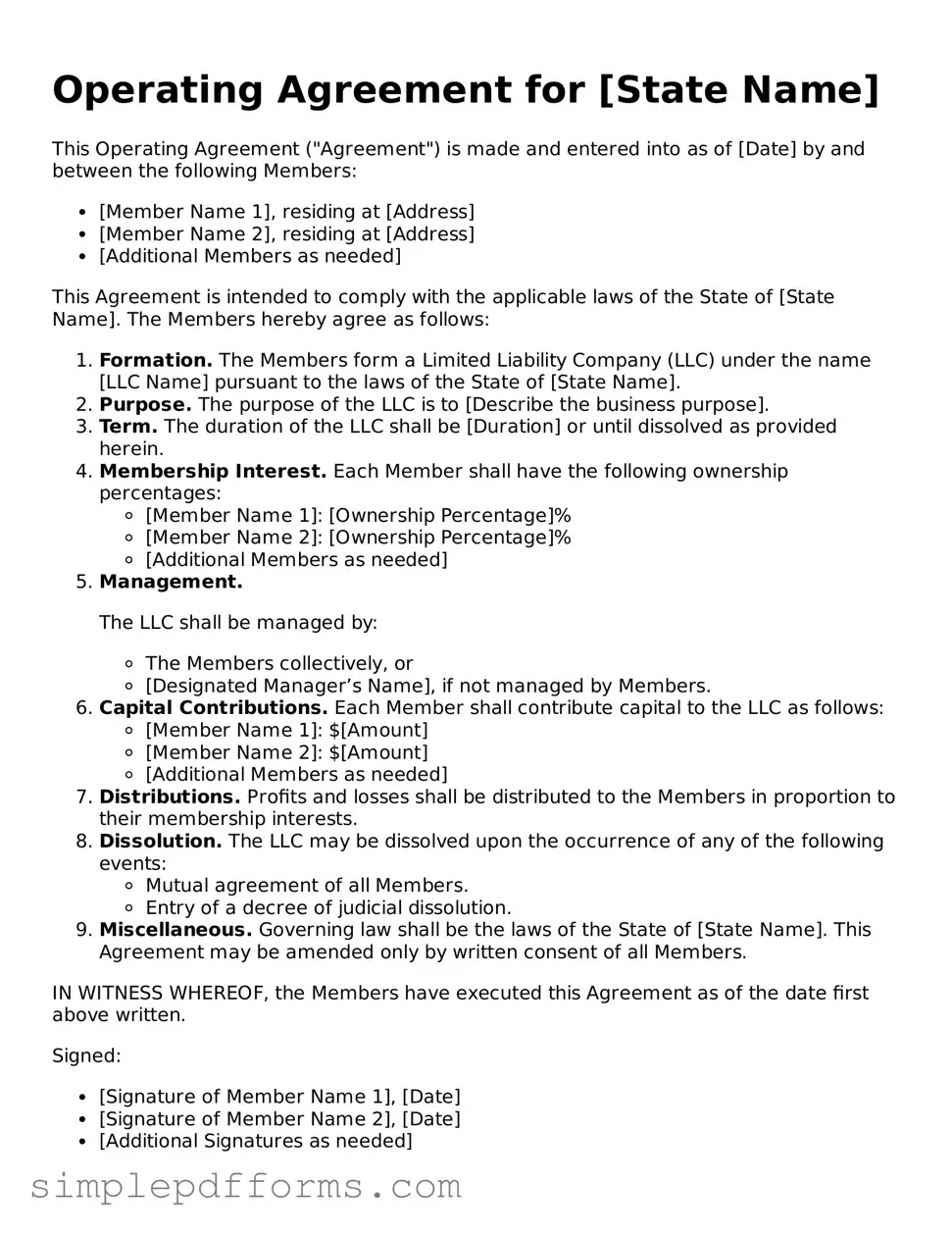Free Operating Agreement Form
An Operating Agreement is a crucial document for limited liability companies (LLCs) that outlines the management structure and operational procedures of the business. It serves as a guide for members, detailing their rights, responsibilities, and the distribution of profits and losses. Establishing clear terms through this agreement helps prevent disputes and ensures smooth operations within the LLC.
Open Operating Agreement Editor Now

Free Operating Agreement Form
Open Operating Agreement Editor Now

Open Operating Agreement Editor Now
or
Get Operating Agreement PDF Form
Your form is waiting for completion
Complete Operating Agreement online in minutes with ease.